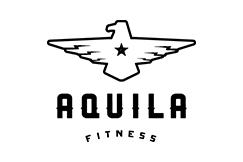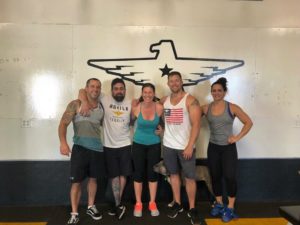Deadlift Burpee WOD from the CrossFit Games 2008
5 Rounds of:
5 Deadlift 275/185
10 Burpees
Here at CFES we harbor an environment of constant measurement and feedback on where you currently
stand and how you are progressing. We value measurable improvement or
positive adaptation within our exercise program. Setting goals and
achieving them is an exciting and motivating part of what we do here.
Many of you have gotten used to the extreme rate of improvement, or the instant
gratification period of adaptation that occurs during the early phases of
participation in our program. Now that most of you have been
participating longer, and it is getting harder to improve, some of you are
struggling with the reality that your rate of improvement is slowing
down. Some of you have unrealistic expectations of how you should rank
among your peers because you do not objectively understand the factors that
cause our results to be different from one another. All of this measuring
can be a very healthy and motivating part of what we do here, but when viewed
incorrectly or misunderstood, this system can be un-motivating, discouraging,
or even downright dangerous. The following discussion is intended to give
you some perspective on how to view your own personal results in a positive and
realistic light, as to maximize your understanding of the rate of adaptation and
your sense of well being within our program.
First let me explain the graph above. This is strictly a theoretical
best-fit curve representing adaptation to exercise. There is no actual
data represented here, it is just a model by which to give you some perspective
on adaptation to exercise over time. A real person would have peaks and
valleys much like a stock market graph. There are many factors that could
change the shape of these curves such as injury, illness, diet, frequency of
workouts, and motivation level or technique breakthroughs. On average and
in general the progress would look something like this over time. Keep in
mind as you read this article that I will discuss different measurable
variables, but the discussion of the dependent variable could represent
anything measurable ie. overall fitness, power output, max deadlift, max pull
ups, Fran time, 1 mile run, blood pressure, body fat, bone density, cholesterol
or anything else that you could possibly measure relating to your health and
fitness. The higher the value of the graph, the more favorable the value
of the dependant variable. So I am saying that for variables like Fran
times or cholesterol levels where lower values are actually more favorable, we
will still represented these with a higher value on the graph. Simply
put, higher represents better here regardless of the variable in question.
The first thing to realize is that the rate of improvement in the initial
phase of exercise is going to be much faster than it will be as time goes
on. Eventually all variables will reach a plateau, although none of you
are there yet. This should not be
shocking, but I think many of you fail to realize it. When I started
CrossFit 2 years ago, I had a max deadlift of 275 and six months later I could
deadlift 365. So I improved 100 lbs in six months. Many of you had
a similar experience, so now you think you should be able to add 100 lbs to
your deadlift every six months. So if that were true, here I am 2 years
later and I should be able to deadlift 675. And in 2 more years I will be
able to lift 1075. It seems obvious when you put it in perspective, but
many of you are failing to realize that this type of linear progress is not
possible indefinitely. All you see is that you do not PR by 25 lbs every
time we lift like you did initially. Take a deep breath and tell yourself
its okay. You still are going to improve, but those improvements are
going to be smaller and spaced out over more time. Eventually you will
reach a true max potential for any given variable and then you will try to hold
it there as high as possible, for as long as possible, before the inevitable
aging process takes over and the value digresses.
The next thing to realize is that we all start at a different level and we
all have a different potential for improvement. Athlete A is someone who
starts CrossFit at a relatively high level of fitness (or any other variable
you want to measure). Athlete B starts at an average level and Athlete C
starts with one foot in the grave. Generally the least fit person has the
most potential and will improve the most, but probably will never reach the
same level of the person starting with the highest level of fitness. Remember
the kid on your youth sports team who got the most improved award. Athlete D is the exception to this idea
and they are one of the main reasons we need to have this discussion.
When you started off, you were ahead of Athlete D and you expected to stay
there. But now they are passing you up in certain areas. Why is
this? Should you work harder? Should you eat better?
WTF? You can 't take it anymore! Step back and take a clear
objective look at yourself, at Athlete D, and at the variable in
question. Lets look at each person as an individual who possesses
individual qualities and individual athletic potentials. So when you came
in here you could do Fran faster than Athlete D, but here we are 6 months later
and they are beating you. Could age be a factor? If you are 45
years old and were fairly fit when starting, and Athlete D is 25 and was
deconditioned, Athlete D is probably going to pass you up at some point.
Lets get real here. If you weigh 100 lbs and could press more than D
initially, but they weigh 150 and they have passed you in strength. Is that any reason to beat yourself up? You might actually still be stronger
pound for pound.
Lets look at max strength on a particular lift, say push jerk. I have
recently had many people come to me frustrated that someone who used to lift
the same amount as themselves can now lift a good deal more. What factors
can cause this? A few factors would be technique, flexibility, build, and
size. If someone is way more flexible that you, they are going to be able
to hold more weight overhead because they can get into a more solid lockout
position and they are not fighting their own muscle tension to do so. So
you can work on your flexibility. If someone is bigger than you they it
is likely they have more muscle than you. There isn’t much you can do about
that is there? You could take HGH
although we wouldn’t recommend it. Think about these things objectively and
consider yourself as an individual with individual strengths and weaknesses or
physical advantages and disadvantages. If Travis and I could push jerk
the same amount of weight, it would be far more impressive that he can do so at
a body weight of 165 than I can at a body weight of 185. So the fact that
I can push jerk more than Travis is no reason for the little guy to go home and
beat himself up losing a good nights sleep over it. By the way bro you’re
a fucking stud! The point here is to think about these factors and look
at yourself as an individual. We are not all the same and we should not
expect to perform the same as one another.
If you are really motivated and really want to get an edge on someone who
physically has the edge on you what can you do? Turn your efforts towards
diet, flexibility, form, technique, and getting enough sleep because if you
train with us, you probably have already maxed out on intensity. But you
can do everything under the sun that your competitor is not doing, and they
still might beat you. Its okay because you are all the better for having
tried.
Competition. We love it, we live for it, it drives us to
succeed. Coach Glassman said, “Men will die for points.” He was
absolutely correct. We see it every day in here. Unfortunately when
competition is not viewed properly it can also can ruin our day, our
self-image, and just be downright dangerous. Although we do want you to
know where your ability level stands within in the group, we want these
comparisons to be a healthy and motivating experience. It is again
important to realize your individual abilities and to work within your abilities.
When Athlete D passes you up on back squat ability, it is not time to throw
caution to the wind and go for a bigger lift just to stay ahead. If you
forgot to check your ego at the door, you will probably hurt yourself.
Now it is the time to compete against yourself and to tell Athlete D,
"Great job brother!" After all they have much bigger hips and
thighs than you do and they were born to back squat. Chances are that you
will probably be able to walk over to the pull up bar and knock out twice as
many pull ups as Athlete D. Pride yourself on your strengths, and work on
your weaknesses. Either way do not let your deficits do anything more
than motivate you to persevere.
Check your egos at the door every day. You all have made tremendous
improvements over the last year and you all should be proud. Realize that
as time goes on you are going to struggle in certain areas and excel in
others. Don’t let your struggles get you down. You can't always
improve all the time and we don't all improve at the same rate at all
things. You are going to have goats, or things that you just struggle
your ass off with. The good news is that at this point for your gender,
age and size, you are probably already in the 90th percentile of the
entire human population. Isn’t that pretty damn good? Shouldn’t you
be proud of that rather than beat yourself up over your fellow athlete who in
the 97th percentile. We don’t even know of any other place
besides a few other CF facilities where the athletes have accomplished so much
in such a short period of time. You all are amazing people and amazing
athletes. You make us very proud every day and you should be proud of
yourselves everyday too.






